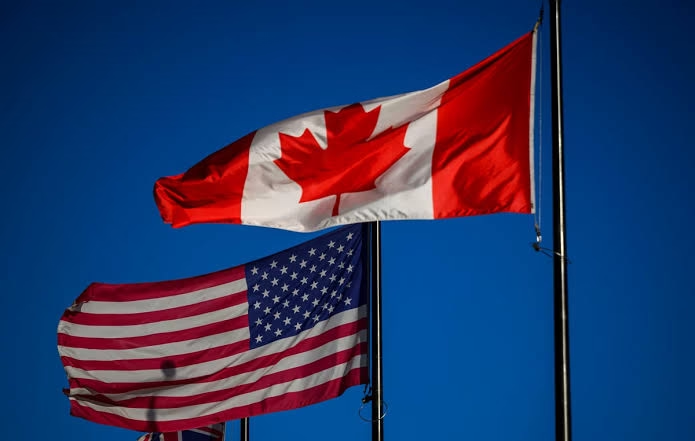Ottawa, Canada – Prime Minister Mark Carney announced a historic shift in Canada’s relationship with the United States on Thursday, declaring that decades of tightly integrated economic and security cooperation are “over” and vowing a sweeping renegotiation of bilateral trade and defense agreements. The remarks, delivered during a press conference in Ottawa, signal a dramatic pivot in North American geopolitics as Canada grapples with escalating tensions over President Donald Trump’s aggressive tariff policies.
Speaking after urgent consultations with provincial premiers, Carney warned that Trump’s newly imposed 25% tariff on foreign-made vehicles—a move ostensibly designed to bolster U.S. automakers—has forced Canada to reassess its economic strategy. “The old relationship, built on seamless supply chains and mutual security priorities, no longer serves Canada’s interests,” Carney stated. “We must now pursue reliable partnerships and rebuild critical industries to withstand U.S. hostility.”
USMCA in Jeopardy?
Carney’s declaration casts uncertainty over the future of the United States-Mexico-Canada Agreement (USMCA), the Trump-era trade deal ratified in 2020 as a successor to NAFTA. While components compliant with USMCA are temporarily exempt from Trump’s auto tariffs, Carney argued the pact fails to shield Canada from volatile U.S. trade tactics. “A broad renegotiation is inevitable,” he said, hinting at demands for stronger protections against unilateral tariffs.
The tariffs, announced Wednesday, have already rattled markets: Shares in General Motors (GM) plunged 7.4%, while Ford fell 4%, reflecting investor fears of disrupted North American supply chains. Though Trump granted temporary exemptions for USMCA-aligned goods, analysts warn the levies could cost Canada’s auto sector billions annually. Canada exports nearly 90% of its vehicles to the U.S., with the auto industry contributing over $20 billion to its GDP.
Retaliation and Diversification
Carney vowed retaliatory measures targeting U.S. industries “where it hurts most,” emphasizing efforts to minimize domestic fallout. He also outlined plans to “reimagine” Canada’s economy by reducing reliance on the U.S., which accounts for 75% of Canadian exports. Key strategies include:
- Accelerating trade diversification efforts with the EU, UK, and Indo-Pacific partners.
- Revitalizing the auto sector through investments in electric vehicle (EV) manufacturing and access to global markets.
- Strengthening domestic supply chains in critical minerals and green technology.
“We cannot remain hostage to unpredictable U.S. policies,” Carney said, referencing Trump’s broader trade wars with China and the EU. “This is a wake-up call to build resilience.”
Political Turbulence Ahead
The Prime Minister’s bold stance comes amid a snap election campaign, with voters set to head to the polls on April 28, 2025. Carney framed the tariff crisis as a “national emergency,” positioning himself as a leader willing to confront U.S. aggression. Opposition leaders, however, criticized his approach as rash, warning that severing ties could jeopardize 2.3 million Canadian jobs tied to U.S. trade.
Carney confirmed he will speak directly with Trump in coming days but downplayed hopes for a quick resolution. “These tariffs will backfire,” he asserted, citing studies showing U.S. consumers could face $85 billion in higher costs annually.
Global Implications
Canada’s recalibration mirrors growing global unease over U.S. protectionism. The EU and Japan have similarly threatened countermeasures, while China has urged multilateral cooperation to counter Trump’s policies. For Canada, the path forward hinges on balancing economic sovereignty with the reality of its deep cross-border ties. As Carney put it: “This isn’t about turning away from the U.S.—it’s about ensuring Canada can stand on its own.”
— With additional reporting on USMCA impacts, market data, and global trade trends.
SEO Keywords: Canada-US trade war, Trump auto tariffs 2025, USMCA renegotiation, Mark Carney trade policy, Canada economic diversification, Canada snap election 2025, retaliatory tariffs, North American supply chains, Canada-EU trade, electric vehicle manufacturing.

Leave a Reply